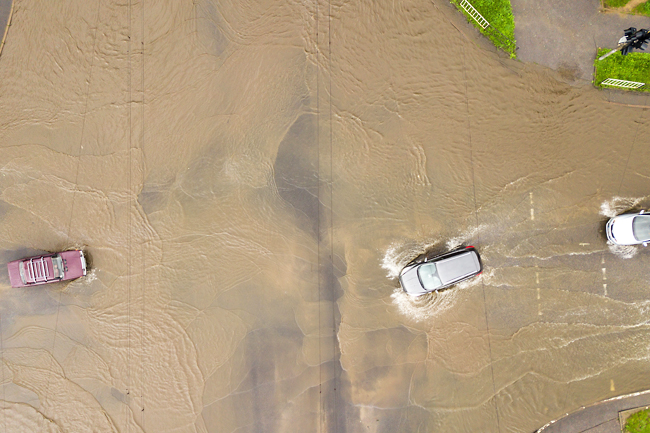Following the recent heavy rains and risk of flooding, the Ministry of Health (MoH) issued a statement yesterday reminding the public, especially those living in flood-affected areas, to take precautionary measures to prevent accidents, injuries, and the spread of food and waterborne infectious diseases such as diarrhoea, food poisoning and vector-borne diseases like dengue.
The public is advised to ensure water supply is clean and safe. They should boil drinking water or consume bottled water; cook food thoroughly; prioritise personal hygiene by washing hands with clean water and soap after using the toilet; and maintain clean surroundings.
Public is also reminded to dispose of waste properly and ensure drains are clear of rubbish, tree trunks, and branches; and seek medical attention if experiencing fever, abdominal pain, diarrhoea, vomiting, or other symptoms.
Additional safety tips include prioritising the safety of children to prevent exposure to floodwater, drowning, injuries and infections. Public should avoid contact with fallen electrical wires near flooded areas while individuals with wounds, skin diseases, or chronic health problems (especially diabetes), should avoid exposure to floodwater as much as possible to prevent infections. Those with minor injuries exposed to floodwater should clean the wounds and seek medical attention at the nearest health centre while patients with chronic diseases should ensure they have an adequate supply of medication. If medication runs low, contact the nearest health centre for a refill.
The public is also advised to take precautions against attacks from wild animals during floods, particularly snakes and crocodiles and to eliminate potential mosquito breeding grounds.
During the northeast monsoon season and floods, the public is reminded to maintain good personal hygiene and practice social responsibility.
For more information, visit the MoH website at www.moh.gov.bn or call Darussalam Line 123. – James Kon



